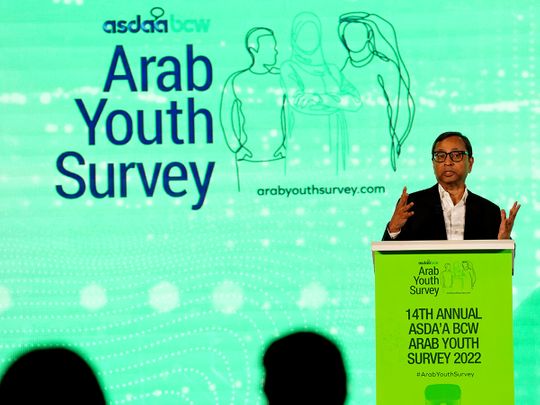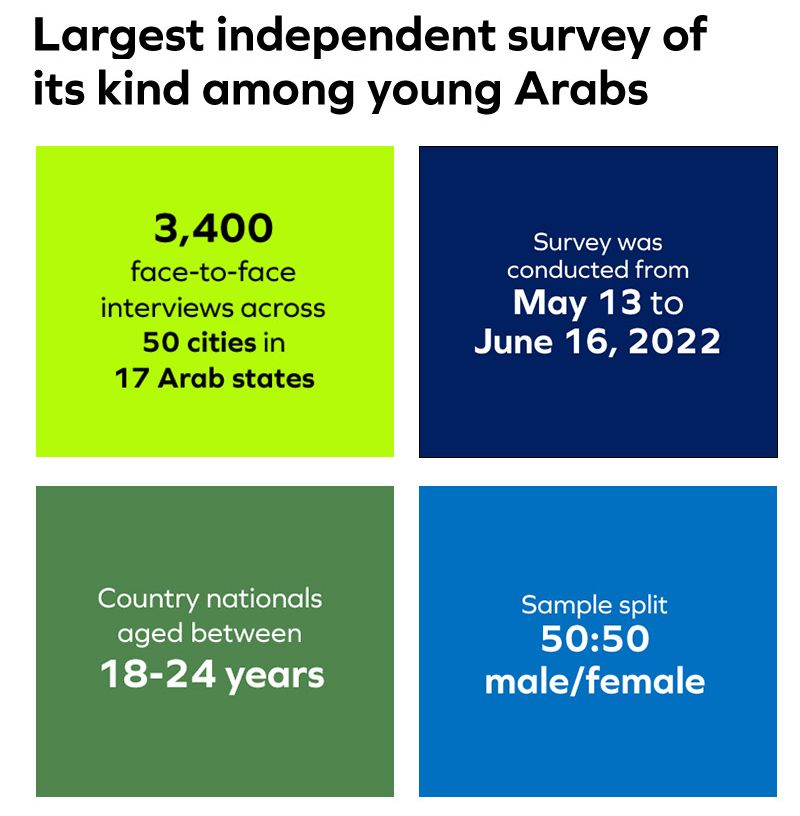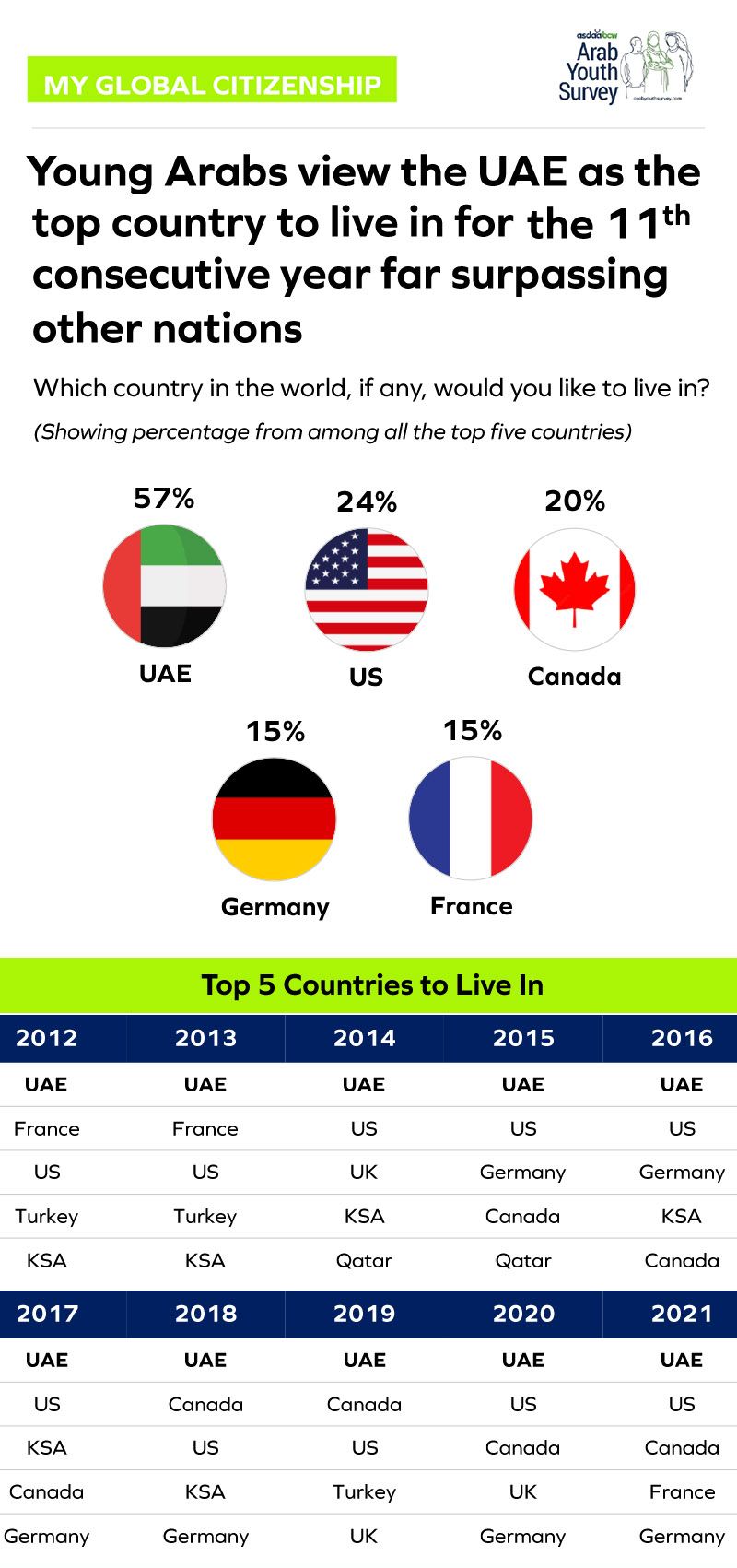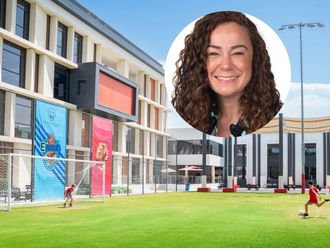
Dubai: For the past 11 years, the UAE has been named by majority of the Arab youth as the “country they would most like to live in and their own country to emulate.”
The UAE’s growing economy, safety, high salaries and respect for Arab culture are the major attractions, according to the 14th Annual ASDA’A BCW Arab Youth Survey released today.
His Highness Sheikh Mohammed bin Rashid Al Maktoum, Vice President and Prime Minister of the UAE and Ruler of Dubai, has sent a message to all governments saying that people’s movement towards or away from you is the best measurement of the success of your experience.
“Today, I reviewed Asda’a BCW Arab Youth Survey, which covers 50 Arab cities in 17 countries. More than half of the Arab youth think that their countries' economies are moving in the wrong direction, and 45 per cent of the respondents said that they are trying or seriously considering emigrating from their countries. Economy is above all and it is everything,” Sheikh Mohammed tweeted.
“According to the same poll, the UAE has been chosen as the top country in the world to live in by the Arab youth. people’s movement towards or away from you is the best measurement for the success of your experience. This is my message to all governments,” Sheikh Mohammed added.
The popularity of the UAE as a place to live in is at its highest point since the Arab Youth Survey began asking in 2012 the question: ‘Which country in the world, if any, would you like to live in’. That year, 33 per cent of respondents said the UAE was the country they preferred to live in, followed by France and the United States.
This year, nearly two-thirds or 57 per cent of the total Arab men and women surveyed aged between 18 and 24 years old have identified the UAE as their top choice, ahead of US (24 per cent), Canada (20 per cent), France (15 per cent) and Germany (15 per cent).
The results are based on the survey commissioned by communications consultancy company ASDA’A BCW to IDS Research & Consultancy that conducted face-to-face interviews with 3,400 Arab youth from May 13 to June 16 in 50 cities across 17 Arab states, including Bahrain, Kuwait, Oman, Saudi Arabia, UAE, Algeria, Egypt, Libya, Morocco, Sudan, Tunisia, Jordan, Iraq, Lebanon, Palestinian Territories, Syria, and Yemen. The cohort was split equally between men and women.

Regional appeal
According to the latest survey, “the appeal of the UAE is spread across the MENA region, with 51 per cent of North African youth saying it was their preferred country to live in, followed by US (24 per cent). The UAE is also the number one choice of Levant youth at 57 per cent, followed by Canada (31 per cent). In the GCC, the UAE is the preferred country by 63 per cent of the youth, followed by the US at 19 per cent.”
For 11 straight years, the UAE is also the country most young Arabs want their own to be like. The country is the model nation for 37 per cent of Arab youth, ranking ahead of US (22 per cent), Canada (18 per cent), Germany (14 per cent), France (11 per cent) and Turkey (11 per cent).
Major draw for Arab youth
Based on the research, the top five attractions of the UAE are its growing economy (27 per cent), its safe and secure environment (26 per cent), generous salary packages and the wide range of work opportunities it provides (both cited by 22 per cent of interviewees), and the country’s effective leadership (17 per cent).
The UAE’s respect for the region’s cultural traditions, the quality of its education system, the ease of starting a business and the low taxes were the other attractions.

Beacon of hope
Sunil John, President, MENA, BCW and founder of ASDA’A BCW, said: “As the region’s model nation for the 11th straight year, the UAE continues to be a beacon of hope and opportunity for young Arab men and women across the Middle East & North Africa.
“The enduring popularity of the UAE is a testament to the visionary leadership of the UAE, which staged one of the most successful World Expos in the event’s history – despite the global disruption caused by the COVID-19 pandemic – and is now preparing to host the UN Climate Change Conference (COP28) in November next year,” he added.
John continued: “What is perhaps most telling is the fact that the UAE scores highly on all the issues that Arab youth said were most important to them in our research, such as job opportunities, education quality and the preservation of the region’s cultural traditions and values.”
Drive for sustainable growth
Meanwhile, most young Emiratis welcome the UAE’s new directives for sustainable growth. More than nine in 10 or 94 per cent say they approve of the recent introduction of longer residence visas for expatriates and new rules to obtain them more easily; while 84 per cent support the decision to allow expatriates to fully own onshore companies.
Based on the survey, 83 per cent of Emirati youth approve of the soon-to-be-introduced corporate tax; and nearly nine in 10 or 87 per cent accept the adoption of a Monday-to-Friday working week. Moreover, more than half or 54 per cent say they accept the right of unmarried couples to live together.
Collectively optimistic
Most Arab youth are hopeful, but Emirati youth are particularly optimistic, with 91 per cent saying their best days lie ahead of them, and the country’s economy is going in the right direction. Nearly half of the young Emiratis (48 per cent) interviewed said it has been easy to find a job.
While better off compared with young Arabs in other countries, Emiratis, however, are not oblivious to the challenges facing the region, with 45 per cent of them identifying rising living costs as the biggest obstacle, followed by unemployment (27 per cent) and climate change (18 per cent).
Religion and personal identity
A third of Emirati respondents (33 per cent) said their religion and nationality were most important to their personal identity, as compared with 41 per cent of total Arab youth interviewed.
But like their Arab peers in the region, a clear majority of young Emiratis (75 per cent) have said it is more important to preserve the Arab world’s religious and cultural identity than to create a more globalised society.
Nearly nine in 10 or 89 per cent of young Emiratis say men and women have equal rights, and 84 of them say there is gender parity in employment opportunities.
Online shopping
The number of Arab youth doing online shopping has nearly doubled in five years, and almost all young GCC citizens are shopping via a social media app or website at least a few times a month. Food, clothing, groceries, electronics and beauty/grooming products are their top-five digital purchases.
Social media impact
Social media habits are changing. The daily use of TikTok has doubled since 2020, while the popularity of Facebook and Twitter has declined. Today, TikTok is the fifth-most popular social media app after WhatsApp, Facebook, Instagram and YouTube.
Young Arabs also said TV, online news and printed newspapers are more trustworthy than social media sources and influencers. At least two-thirds (65 per cent) say they get their news from social media; followed by TV, online news sources, and newspapers. Television is the most trusted news source (84 per cent). Social media contents are deemed trustworthy by 66 per cent of respondents but newspapers and online news sources rant higher at 71 per cent.
Arab youth are struggling to disconnect from social media, with three-quarters of those polled (76 per cent) either strongly agreeing or somewhat agreeing that they find it difficult to disconnect.
Optimistic
With COVID-19 restrictions easing and the economy rebounding in some Middle East countries, young Arabs are more optimistic than they have been in the past five years, with 64 per cent of them saying their best days lie ahead. The figure is higher in the GCC at 87 per cent.
Donna Imperato, Global CEO, BCW, said the findings of the 14th ASDA’A BCW Arab Youth Survey open a window onto the shifting dynamics of the Arab world. She said: “The ASDA’A BCW Arab Youth Survey provides rich data for policymakers, businesses and communicators who want to better understand the hopes, attitudes and aspirations of the MENA’s region’s largest demographic.”
John added: “By their nature, Arabs are an optimistic people – and the results show this again, with two-thirds saying that their best days lie ahead.
-with inputs by Tawfiq Nasrallah, Senior News Editor











